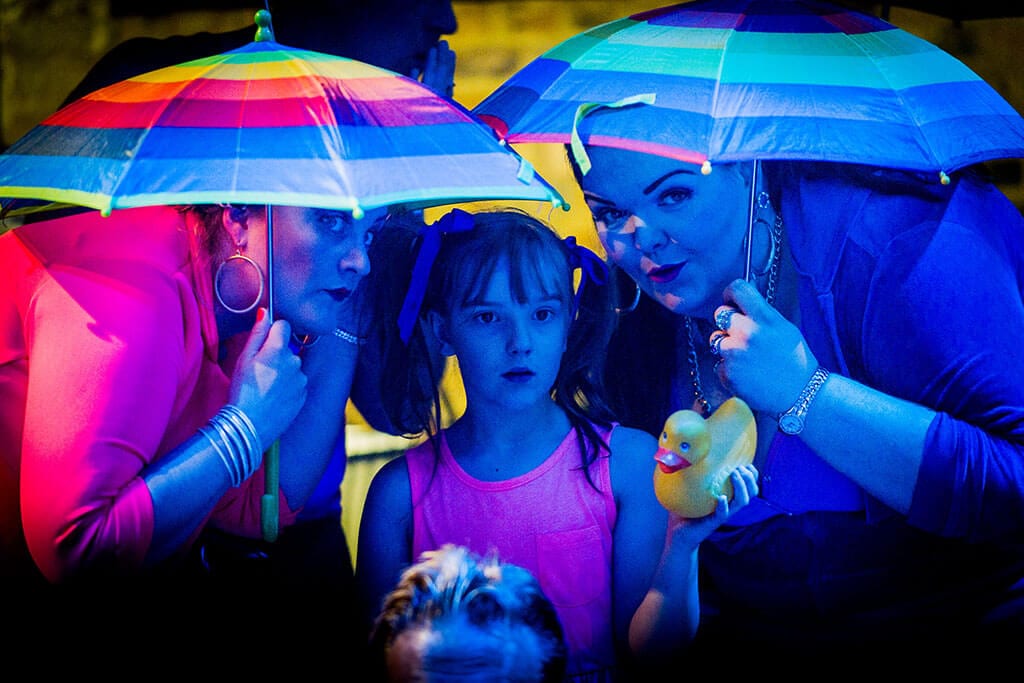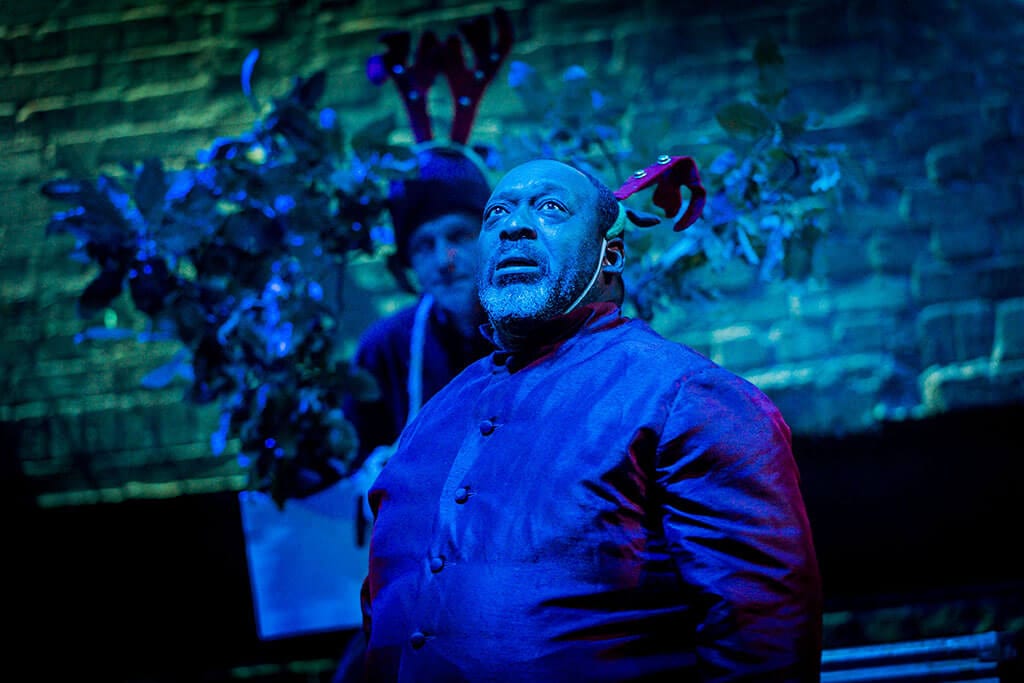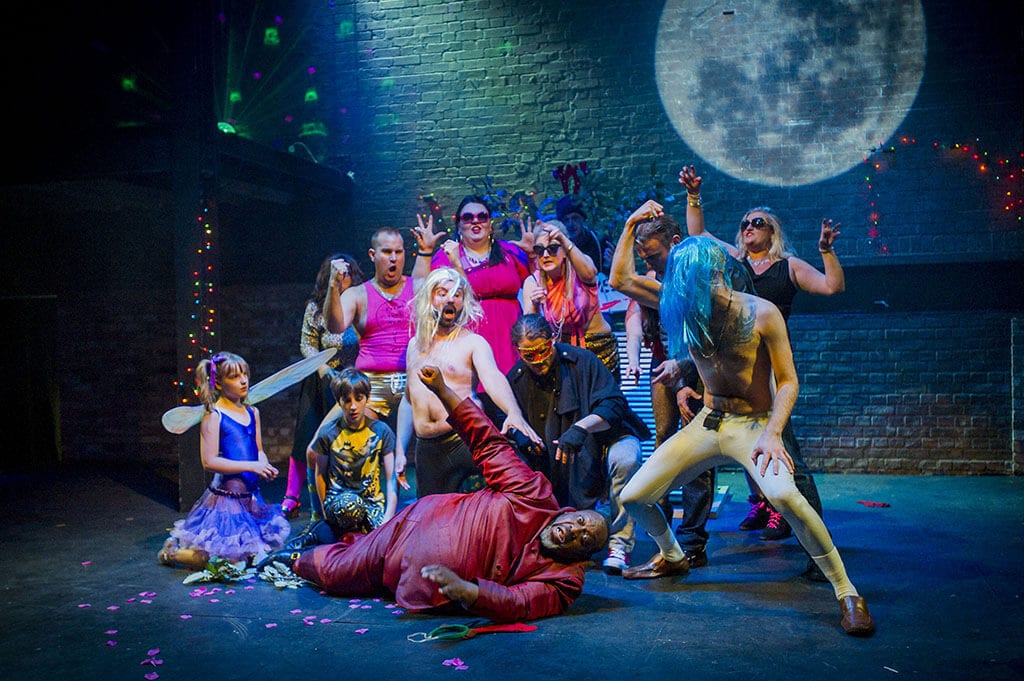Gulham Opera’s version of Verdi’s late masterpiece, Falstaff, is a delight. Though the setting is modern day – the ‘seaside postcard’ vibe reminds me of Clacton on a bank holiday – the opera is performed in the original Italian. Given the inadequacy of the surtitles in Studio 1 at the Arcola Theatre, this could have been a problem but the brilliant singing and the strength of the comic invention totally carry the show. From the moment the action begins with Falstaff staggering into the Garter Inn where his cronies are lounging around and his page is playing games on his smartphone, you know that the comedy is on track and the first notes sung by the excellent Keel Watson as Falstaff tell us that Verdi’s music is in the safest of hands. There is not a weak link in this large cast – they look like they are in Clacton but they sound like they are in Covent Garden.
Keel Watson’s performance is tremendous – his rich bass/baritone sound is superb and it is sustained through a series of dramatic scenarios which make real physical demands – particularly in the slapstick of the laundry basket scene. He also captures so well the melancholy that sits close behind the humour. His stooges, Bardolph and Pistol, also pitch in with a ‘Laurel and Hardy’ mode – they thrive in this setting, never more so than in the hilarious final scene by the oak, but they sing well too. There are too many fine performances to list all of them but Catharine Rogers as a sexy Mistress Ford and Oliver Gibbs as her angry husband are spot on. Roberto Abate and Caroline Kennedy as the ‘up for it’ young lovers also sing with real style while totally committed to the broad humour.
The Arcola studio places some severe limitations on the staging of a piece like Falstaff. Most of the audience is effectively on two sides of the action; the balcony rows are high on the third side and, although we are all close to the action, it doesn’t always make for good sight lines. There is very little opportunity for scenery but that makes the midnight magic of the final scene all the more impressive – the disco ball lighting and the bored stagehand with a sign and a couple of branches representing Herne’s Oak are an inspired way of re-imagining the witching hour in Windsor Park.
Daisy Evans directs with the flair and inventiveness that we have come to expect from someone who has worked backstage at Glyndebourne as well as creating the brilliant Silent Opera. Conductor Ben Woodward and pianist Jonathan Musgrave provide most effectively the underlying musical foundation, though it is difficult not to miss Verdi’s rich orchestral textures at some moments. But the final test, the great fugue that closes the last scene, is passed with flying colours, sounding every bit as tight and melodic as you would hear at a grand opera house. A great evening of fun and fine music.



